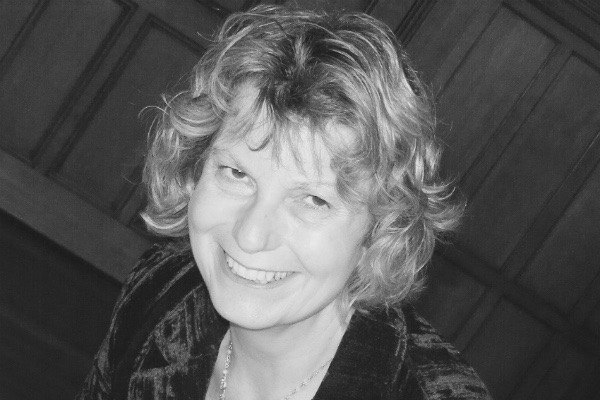Ahead of the forthcoming consultation Faith, Belief and Nation-building, we’re asking some of the participants a few quick-fire questions to give you a flavour of their interests and thoughts…
Today we talk to Jenny Kartupelis MBE, Director of Faith in Society and Strategy and Development Officer for the World Congress of Faiths.
What have you been working on recently?
A conference for the World Congress of Faiths to explore the difficult aspects of interfaith relations and fresh ways to address these.
Co-authoring a book with Canon Dr James Woodward on New structures for care: exploring a relational model of support for older people based on my research for the Abbeyfield Society, developing a new theory of mutual chaplaincy.
My recent review of a workplace chaplaincy has led to being a co-contributor to a paper ‘Spirituality in the Workplace’, to be presented in Arkansas in May.
Currently carrying out an interfaith feasibility study in Cambridge, and finalising a report on volunteering experience and motivation for the Jewish Volunteering Network.
Why did you accept the invitation to Malvern 2017: Faith, Belief and Nation-building?
My various projects all revolve the interplay between individual and societal relationships, faith and spiritual life; and I’m keen to continue developing and sharing the emerging ideas emerging and hearing how others are exploring these issues.
What are you looking forward to about the conference?
Meeting experts and in particular, seeing how what we share with each other might be translated into practical impacts on national life, priorities and policies.
As you know, the consultation takes its name from the conference of 1941, instigated and convened by Archbishop William Temple…
What do you think have been the most positive and negative changes in British society since 1941?
The two questions flow together: both are concerned with the relationship between individuals and society, and the balance between the two sides of that equation.
The creation of the NHS embodied the agreement to pool (or even sacrifice) individual resources in return for communal good. Over the same period, this ‘coalitional’ drive has been balanced by recognition of individual rights now enshrined in equalities legislation. These two changes together represent the positive balance: the NHS is a consensual exchange for a shared good, while equalities are based on the premise that individual diversity is essential to community flourishing.
The last year, in particular, has shown how fragile this balance is, demanding continual vigilance: Trump’s America provides a warning.
The most negative change was marked by Margaret Thatcher upsetting the social/individual balance. This was pivotal in shifting the admittedly fragile consensus responsible for the welfare state towards an emphasis on individual success, specifically financial success, paving the way for 2008.
Why is it important that the role of faith and belief be a part of the conversation about nation-building?
The UK has not become ‘faithless’: there are ever fewer Christian (specifically CofE) worshippers, but other faiths and new independent churches are flourishing. Faith is an important part of many people’s identity, and 59% of people characterise themselves as seeking a ‘spiritual’ meaning in life. The spiritual nature of the human draws us together, even across boundaries. It is a protection against the healthy desire to belong to a nation morphing into a very unhealthy nationalism that can be exploited by powerful individuals.
Thanks Jenny!
You can find out more about Jenny here, and more information about Malvern 2017: Faith, Belief and Nation-building by following this link.
More blogs on religion and public life
- Three core principles of Radical Hope to bring to the policy table
by Chris Baker - Radical Hope, after 10 years with Communities Together Durham.
by Val Barron - 6 New Trustees Appointed to the William Temple Foundation Board
by Matthew Barber-Rowell - “Grace Income & The Vineyard” – Exploring UBI in the UK
by Tim Jeffery - Lenten Tension; Action Vs Contemplation
by Val Barron

Discuss this